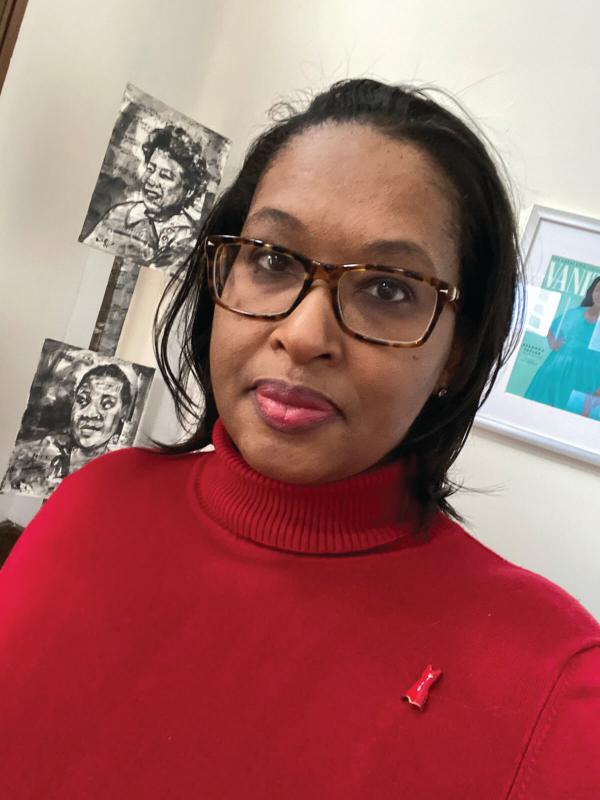
Rachel Graham
Living with Heart Disease: A Survivor’s Story
Mitral valve regurgitation took Rachel Graham’s grandmother from her in the 1990s. She was 67. In 2016, the same disorder took Graham’s mother, shortly after having heart surgery and a quadruple bypass. She was 65.
Graham, of Baltimore, just turned 50 years old in December. She also has mitral valve regurgitation, leakage of blood backward through the valve, which can increase blood volume and pressure. In her mind, that gives Graham 15 years to increase awareness about mitral valve regurgitation and try to help other families who might have a history of the heart valve disorder.
“You know how they say, ‘If you knew the day you were going to die, what would you do differently?’ For me, 65 is the number. So the way I see it, I have 15 years. What can I put on
my bucket list while playing whatever role I can working with the American Heart Association in Baltimore?” asks Graham, a member of the AHA’s Executive Leadership Team for Go Red for Women campaign.
“Because we’ve gotta figure out, first and foremost, how to have it come up on people’s radars that this is a problem.”
Graham says she, her mother, and her grandmother lived different lifestyles and had different body types, “yet all three of us have this disorder and so very clearly there’s something in the DNA.”
Graham was incredibly close to her grandmother as a child, referring to her as one of her first educators. She recalls that she had a pacemaker, but they never discussed her grandmother’s health.
“There was never really this conversation around, you know, Grandmother’s heart is bad,” Graham says. “I just knew she had a thing on her chest and that was it.”
Her grandmother died when Graham was 19. Years later, Graham’s mother would have a series of health problems. Because of back pain, her mother always slept sitting up in a chair. During a sleep study in 2015, her mother’s oxygen levels dropped when she was asked to lie on her back. When doctors ran tests, they discovered Rachel’s mom had previously suffered two undiagnosed heart attacks. She was ultimately diagnosed with mitral valve regurgitation.
“So that coughing that she was having was actually the backflow of blood, from the valve not working properly,” Graham says. It had been previously diagnosed as pneumonia; severe regurgitation and increased pressure can cause fluid build-up in the lungs.
“It gives evidence of the fact that women—and particularly Black women—present with cardiac issues completely differently from men and what you see on television or what we’ve come to know,” Graham says. “We don’t necessarily have that clutching of the chest and arm.”
Her mother underwent valve surgery but died in the hospital shortly after.
A few years later, after moving to Baltimore, Graham herself was diagnosed with mild mitral valve regurgitation after convincing her primary care physician to test her heart, knowing her family history. More recent testing shows the disorder has progressed and there are signs of regurgitation in another of her heart’s valves.
Graham will consult with her doctor in the spring to determine if valve replacement surgery is necessary. In the meantime, she’s adjusted her lifestyle. She no longer eats some of her favorite foods, like macaroni and cheese or fried fish, replacing them with more heart-healthy options. She’s exercising about 30 minutes a day, three times a week—her heart condition limits how frequently she can work out.
By working with the AHA, Graham hopes more research can be done to help people identify and proactively get ahead of heart disorders like hers. If nothing else, Graham hopes that by sharing her story, more families will be willing to talk to each other about hereditary heart problems.
“I want there to be research for me and for my daughter so that she knows what she can do. And so that on my 65th birthday I can say “Hey, I’m still here,” Graham says. “I know that we’re not the only family on the planet that’s had this experience, and so maybe through my focus on finding a solution for myself and my family, someone else could get answers.”